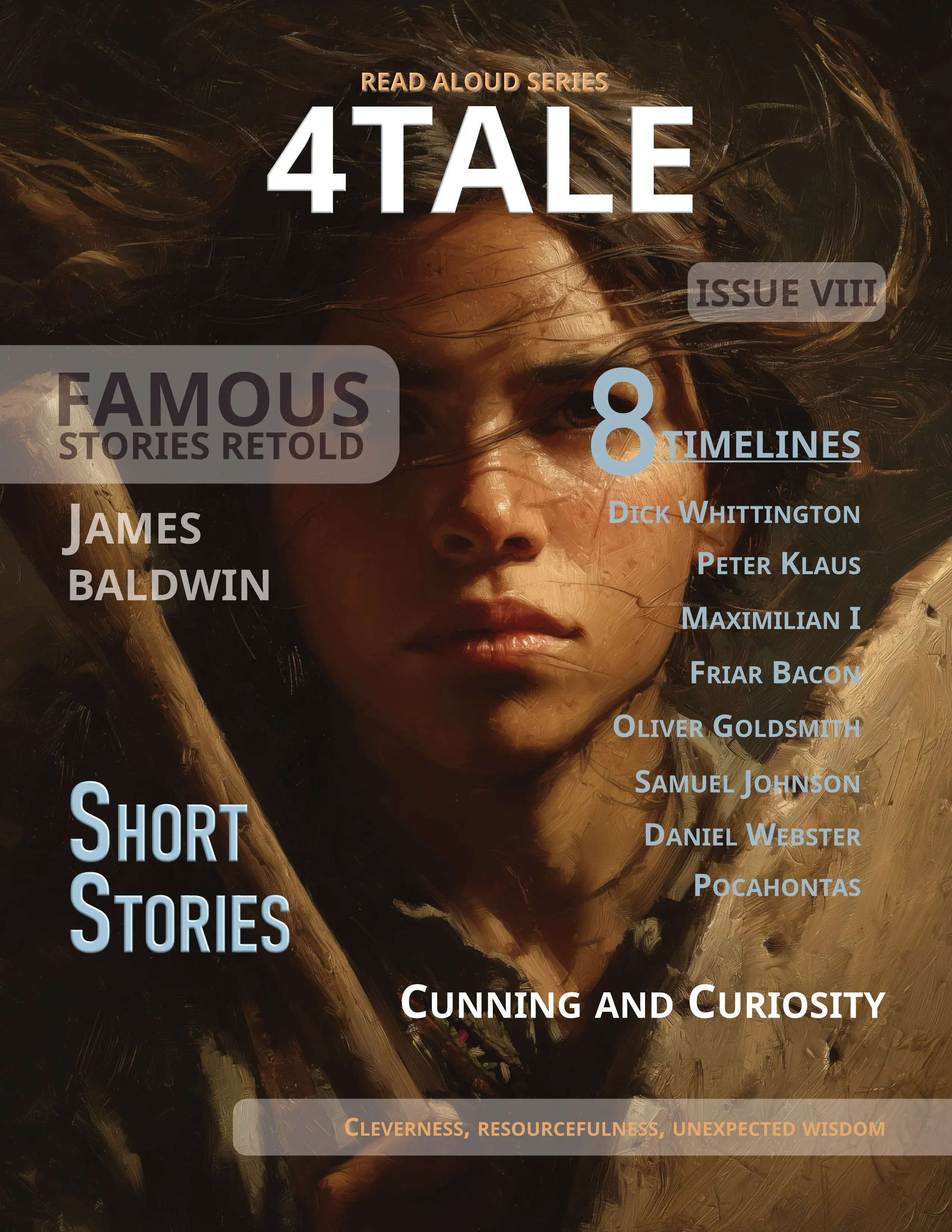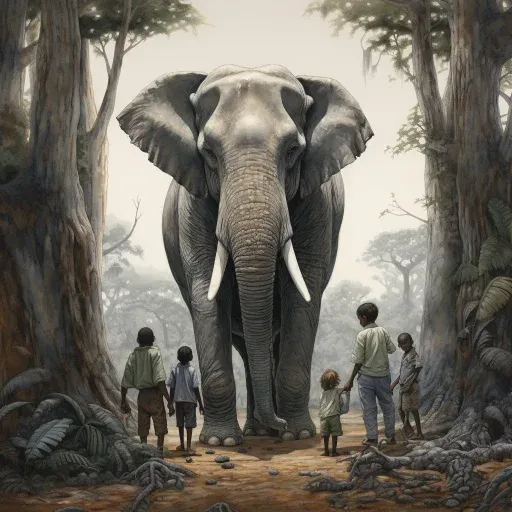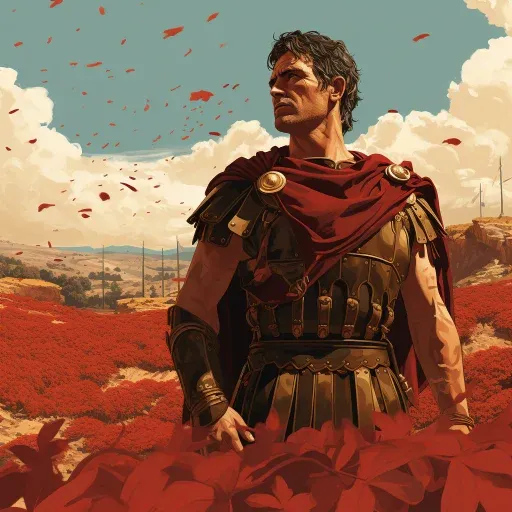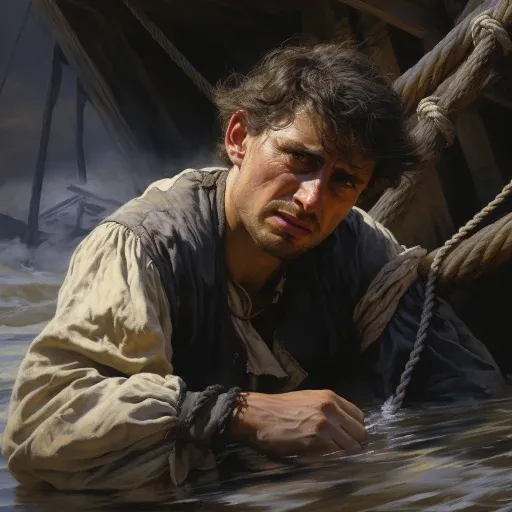BY JAMES BALDWIN
Maximilian and the Goose Boy
Famous Stories Retold: Story 44 of 50
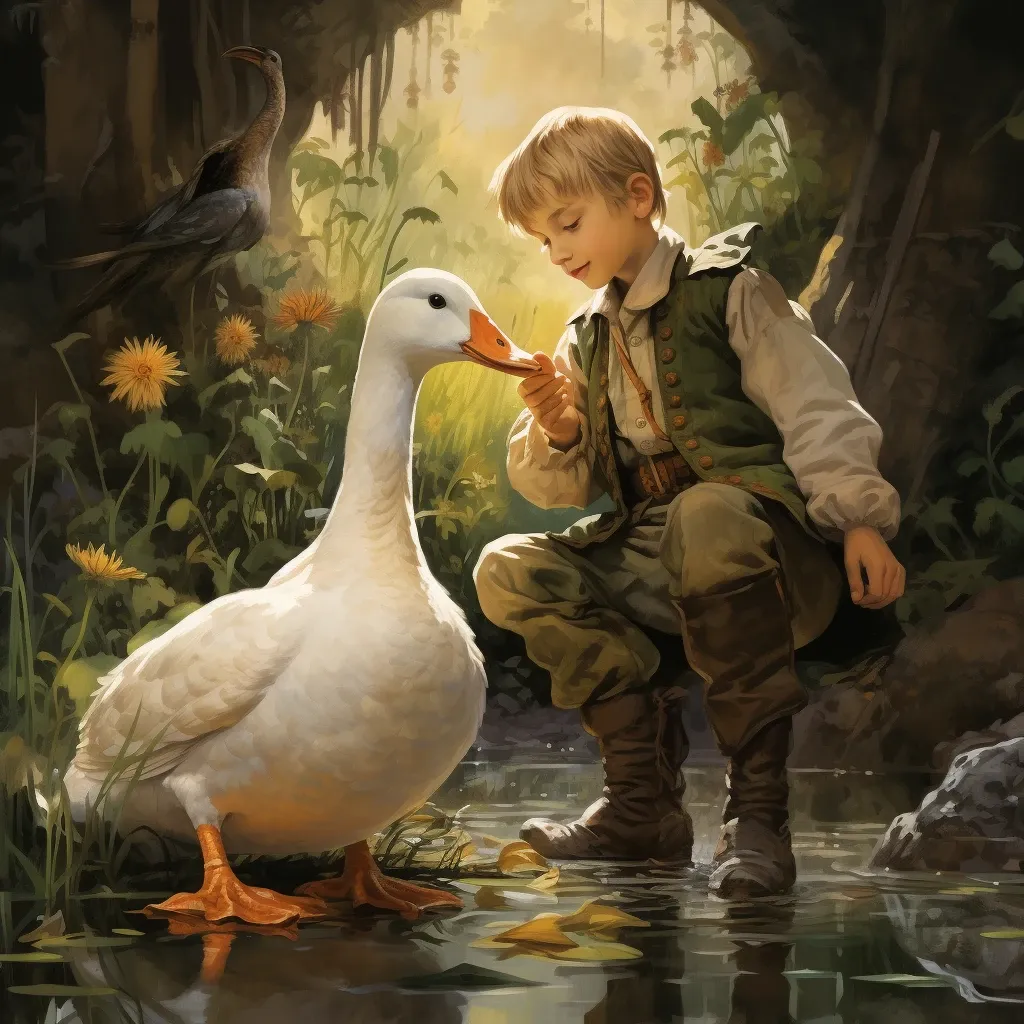
Heading

Unexpected Reward: Impressed by the boy’s cheerfulness and simplicity, the king later rewards him with gold, changing his life.
Moral: The story underscores the virtues of contentment, cheerfulness in adversity, and the unexpected rewards that can come from maintaining a positive outlook.
A good book we like, we explorers. That is our best amusement, and our best time killer
- Roald Amundsen, Explorer
Bavarian Lore: The Wisdom of King Maximilian and the Goose Boy
Embark on a journey through the verdant fields of Bavaria, to witness a tale imbued with wisdom, humility, and humor. Encounter King Maximilian, a monarch entangled in a peculiar predicament, and a wise goose boy who imparts lessons far beyond his years. This story, rich in cultural legacy, unveils the truth that wisdom often comes from the most unexpected places. Will the King learn the lesson of humility he never expected? Join us as we unravel this captivating tale, promising lessons for everyone to take home.
The Serene Stroll of King Maximilian
One summer day, King Maximilian, the ruler of Bavaria, decided to spend his day in the tranquility of the countryside. As the sun shone brightly, he sought respite under the cool shade of a tree. Lying on the soft grass, he gazed at the white clouds that seemed to sail across the sky, a picture of serenity. But as he tried to immerse himself in a book, sleep chose to be his companion instead.
The Forgotten Book and the King's Dilemma
When King Maximilian awoke, it was past noon. The grassy bed had served him well, but as he prepared to head home, he realized he'd left his book under the tree. Despite being weary, the thought of losing his book troubled him. He wished for someone he could send to retrieve it but found himself alone. Except for a little barefooted boy tending a flock of geese in a nearby field.
Podcast
Encounter with the Goose Boy
The sight of the Goose Boy sparked an idea in the king's mind. Approaching the boy, he offered him a gold piece in exchange for retrieving the book. But the boy was skeptical, bewildered by the notion of receiving a gold coin for such a simple task. It was only when the king placed the gold piece in the boy's hand that he agreed to the task, leaving the king with the responsibility of the geese.
The Exchange of Gold and Responsibilities
The story takes an interesting turn when the king, desperate to retrieve his forgotten book but not willing to abandon his journey home, decides to propose a deal with the goose boy. King Maximilian offers the young boy a tempting reward, a gleaming gold coin, in exchange for his assistance. However, the boy, not naive to the promises of strangers, initially hesitates and questions the king's intentions. An amusing exchange follows, where the king tries to convince the boy of his sincerity, ultimately handing over the gold piece to prove his honesty. But the boy, who is responsible for his flock of geese, knows he cannot simply abandon his duties and trusts the king with his responsibilities, setting the stage for the ensuing comical escapade.

The King's Hilarious Misadventure as a Gooseherd
The subsequent scene unfolds with King Maximilian attempting to fulfill his new role as a temporary gooseherd. It was an amusing sight to imagine - a king, unaccustomed to the rigors of country life, trying to herd a flock of unruly geese. Predictably, it ends up in a chaotic chase, with the geese scattering across the meadow and eventually invading a nearby garden. The king's attempts at cracking the whip proves to be futile, portraying his lack of aptitude for the task. The scene paints a humorous picture of the king's misadventures, showing that royal duties and gooseherding are worlds apart.
The Wise Words of the Goose Boy and the King's Humility
Upon returning with the king's book, the goose boy finds the situation exactly as he had anticipated - the geese are astray and the king is at his wits' end. The boy's wisdom is revealed when he takes charge, guiding the king to help him retrieve the geese from the garden. He also expresses his disbelief at the king's claim of royalty. However, the king, instead of being offended, shows humility and good humor, offering the boy another gold piece and expressing his gratitude. The boy's final words to the king, acknowledging his kindness but doubting his ability to be a good gooseherd, underline the moral of the story - every role has its own importance and requires a specific set of skills, even if it is as humble as tending to geese.
Conclusion
"King Maximilian and the Wise Goose Boy" is a heartwarming Bavarian tale that artfully intertwines elements of humor, humility, and wisdom. The story illustrates the unexpected lessons one can learn from seemingly mundane encounters and the importance of humility, even for a king. The tale prompts us to be open to receiving wisdom from the unlikeliest of sources in our journey through life. King Maximilian's misadventure as a gooseherd is not only entertaining but also thought-provoking, reminding us that wisdom and competence come in many forms.

